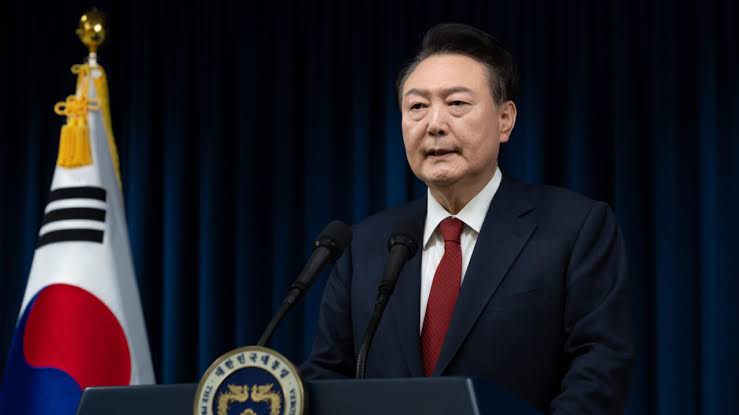
South Korea’s parliament has impeached President Yoon Suk Yeol, citing insurrection charges following his controversial attempt to impose martial law earlier this month.
In a decisive vote on Saturday, 204 out of 300 lawmakers supported the impeachment motion, surpassing the two-thirds majority required. Eight votes were nullified, three lawmakers abstained, and 85 opposed the motion. The impeachment accuses Yoon of orchestrating riots and threatening both the National Assembly and the public.
Following the vote, Yoon’s presidential powers were immediately suspended, with Prime Minister Han Duck-soo assuming the role of interim president. The Constitutional Court will now determine whether to uphold the impeachment, a process that could take up to 180 days. If confirmed, Yoon would become only the second South Korean president in history to be impeached, prompting a presidential election within 60 days.
The impeachment follows a turbulent period marked by a sharp decline in Yoon’s approval rating to an all-time low of 11%. Protests have erupted nationwide, with thousands of demonstrators in Seoul demanding Yoon’s removal and arrest. To maintain public order, the Seoul Metropolitan Government deployed over 1,000 safety personnel.
Yoon’s December 3 attempt to impose martial law drew widespread condemnation, with critics accusing him of undermining democracy under the guise of countering domestic support for North Korea. Opposition leaders and experts labeled the move as reckless, leaving the nation politically unstable and vulnerable to security threats.
The fallout has extended beyond politics, with the former defense minister detained and several high-ranking military officials under investigation. As tensions with North Korea escalate, the crisis has raised concerns about South Korea’s preparedness to address regional security challenges.
The nation now waits for the Constitutional Court’s decision, which will determine the fate of its leadership and future political trajectory.







